In this issue, we will be covering:
- Our 2023 Holiday message.
- IVES mourns one of its own.
- Integrated Operator Training: Let us help you with your load.
- Feature Article: Training for one and all.
- Incident Report: Company fined $50k after worker critically injured after falling form scissor lift.
- Product Feature: Posters, Reference Materials, Signs & Stickers.
- Ask Bob: Our tech guru answers a question about procedures regarding forklift attachments.
- A selection of interesting articles.
- New testimonials from our wonderful clients.
But first, check out all the places we are delivering training this month...
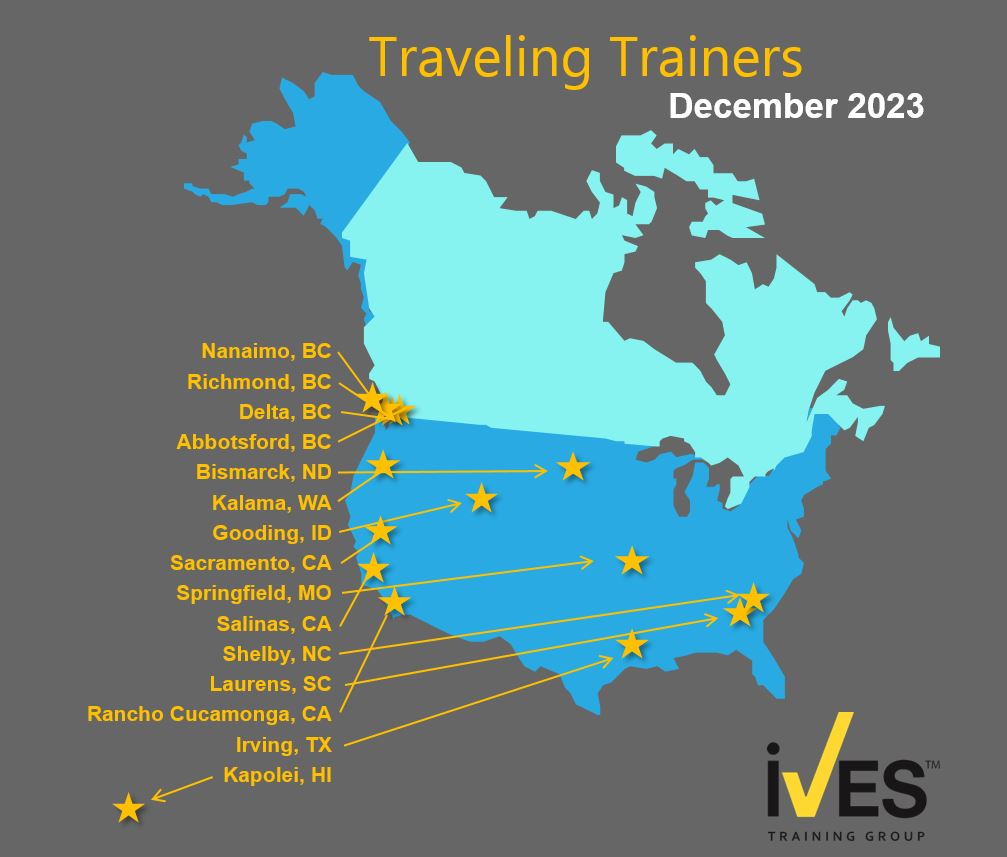
Happy Holidays!
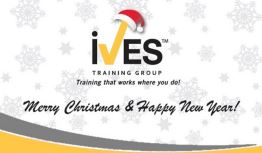 With the holiday season in full swing, we would like to wish all of you a Happy and Safe Holiday season!
With the holiday season in full swing, we would like to wish all of you a Happy and Safe Holiday season!
We thank you for your ongoing support over the past year and look forward to continuing our partnership in safety in 2024!
Please note that our offices will be closed on December 25 & 26 in observance of the Christmas Day holiday, and on January 1 for New Years Day.
The IVES Team
IVES Mourns One of Its Own
 Paul Buehler, past IVES Certified Master Trainer, loving father of three, dedicated husband and one of nicest, most easy-going people you could every meet has passed away at the age of 75.
Paul Buehler, past IVES Certified Master Trainer, loving father of three, dedicated husband and one of nicest, most easy-going people you could every meet has passed away at the age of 75.
Paul’s career with IVES spanned nearly three years, ending in 2009. His good nature and empathy made him very popular with his trainees, whose praise they heaped upon him with phrases like: great guy, he helped me so much and never had a better teacher, regularly sprinkled throughout the evaluations they submitted during the programs he delivered.
“He was a trainer that cared about nothing more than the success of the people he trained. He always was willing to take the extra step or two to help anyone needing some extra attention,” Nick Armer, IVES Chief Master Trainer and personal friend of Paul’s said of him.
“He was one of the guys that clearly understood the nature of the safety training world” said Rob Vetter, IVES’ Director of Training.
“I knew he’d be a great fit for our team very quickly after meeting him. He was a talented trainer and a true gentleman. We’re all very sad he’s gone now; he will be missed.”
Sadly, health concerns forced an end to Paul’s career with IVES far sooner than we had hoped. All of us here at IVES send our most sincere condolences to Paul’s family and friends, and to all those who had the pleasure of knowing him as we did.
The IVES Team.
Let Us Help You With Your Load
 We at IVES believe there is no person better qualified to handle the training and evaluation of powered mobile equipment (PME) operators at your workplace than you.
We at IVES believe there is no person better qualified to handle the training and evaluation of powered mobile equipment (PME) operators at your workplace than you.
As an IVES Certified Trainer (CT), you have the knowledge and training to ensure all the bases are covered form a regulatory standpoint as well as the site and equipment-specific experience needed to make sure the operators you train and work with have the details and demonstrated ability to perform the tasks they are given with the with PME they are authorized to use.
However, we also know how incredibly busy life and work is in today’s world and that things at work or at home don’t slow down and wait for you as your work load increases when tasks like operator training are piled on.
In fact, one of the most common challenges reported during the CT recertification programs we conduct is the lack of time available at work for them to deliver proper operator training programs to level required.
Additionally, these unrelenting demands on their time often result in training being conducted during what is normally personal time on weekends or Holidays, which usually has a negative impact on the spirit of trainer and trainee alike, reducing the effectiveness of the training if and when it finally does occur.
If any of this sounds familiar to you, we have a solution for you.
Let us help you with your load by taking the classroom theory portion of your PME operator training programs off your plate by taking advantage of our Integrated Operator Training Program conducted online with a live trainer.
We know that you’re the best person for the job, but if the circumstances leave you no choice, who better than an IVES Certified Master Trainer (CMT) to turn to as your backup?
The process is basically the same as the one you are already familiar with.
Once the trainees you select are enrolled in an Integrated Operator Training Program, the specified number Compliance Packages containing all the required program materials are sent to you.
When the packages are received, distribute Operator Reference Manuals (ORM) to the trainees enrolled and asked to review them, preferably beforehand, and bring them on the actual training date for reference.
On training day, the trainees log into the system where they are greeted and led through a live, interactive review of the ORM where they can ask questions and engage in discussion with an IVES CMT.
This is followed by viewing a PME-related video, a review of the topics discussed, the completion, grading and review of the operator theory test and finally, private discussion with each trainee as required.
A roster of the attendees along with the status of their success, complete with the results of the operator theory test are sent immediately upon conclusion of the program, which usually runs about 3.5 to 4 hours duration.
From there it’s business as usual – practical training and operational practice time for the trainees with the equipment followed by practical evaluations and documentation just like always.
In closing, it is hard, if not impossible, to argue with the fact that when conducting training of any kind, nothing beats personal interaction with a knowledgeable, capable and motivated trainer that sincerely believes in the value of what they do truly cares about helping the people they train.
However, when the ongoing pressures that are part of the human experience make compromise the only viable option, let us help, click here to learn more or to schedule your Integrated Operator Training Program now!
Training for one and all
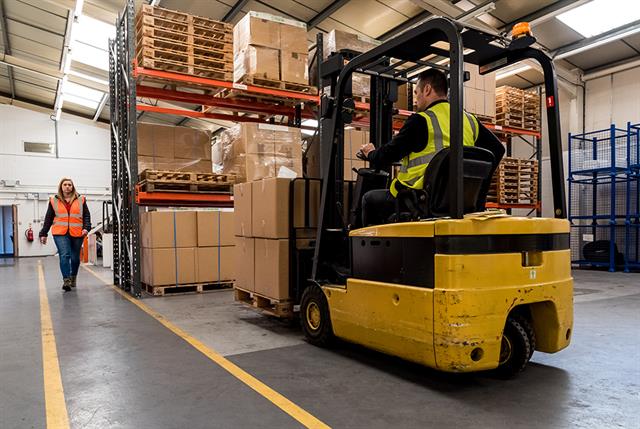
If you think materials handling equipment (MHE) training only applies to operators, think again.
To reduce risk as far as possible, you must ensure that everyone working around forklift trucks understands the dangers, from the managers and supervisors who oversee operations to those working around them on foot.
As the ones in the driving seat day in day out, forklift operators are typically the main focus when it comes to reducing risk within businesses using MHE.
They certainly have a vital role to play in site safety and, thankfully, the majority of employers in the United Kingdom now acknowledge the importance of basic operator training.
There is more work to be done to ensure the standard and sufficiency of this training, including more emphasis on accreditation and following the Health and Safety Executive's (HSE’s_ Approved Code of Practice for Rider Operated Lift Trucks (L117) but operator training is widely accepted as a requirement.
But what we must acknowledge is that targeting operators alone will only get you so far. To further reduce risk, we must broaden the scope to include all those working around forklifts day to day, so that everyone can play their part in contributing to a safe working environment.
A wide reach
A core component of a safe site is proactive management from those who oversee forklift use. Even well-trained operators can make mistakes or become complacent over time, so supervision and monitoring is key to maintaining a safe workplace.
To carry this out effectively, managers and supervisors must be able to spot and correct bad practice. But with no requirement for those in a management role to come from an operating background, specialist training is essential for those managing forklift operations, to ensure safety and compliance is upheld.
Though outlined in the UK’s ACOP, many employers still don’t understand that ensuring these skills is a necessity, with 50% of businesses we recently surveyed reporting that their managers had received no formal training, so significant improvements can still be made in this area.
Protect pedestrians
While its fundamental that those with some control over the MHE operation are equipped to ensure its safety, those working alongside also have a part to play, including colleagues on foot, visitors, delivery drivers and more.
With no protective cab and often little to no specific training, they make up the most vulnerable group in this environment, so it’s vital that they are made aware of the risks they face while working alongside these powerful trucks day-to-day.
Unlike basic operator training, forklift awareness courses can provide a concise, impactful look at key safety messages surrounding forklift use, enabling everyone to understand how to keep themselves and others safe around MHE.
This makes them suitable for pedestrians, as well as experienced operators at risk of complacency, emphasising to all parties the need to stay alert and maintain safe distances.
After all, it’s important that everyone working with forklifts in any capacity understands the importance of following safety measures, and the potential consequences if they don’t.
Improving access to vital training
By widening the reach of your MHE training, you can reduce the risk of serious and costly accidents further than before – and the good news is, rolling this out can be simple and cost-effective.
In the UK material handling industry, providers have produced dedicated courses for these audiences, providing them the specific information they need to meet their responsibilities for safety.
And with no requirement for the practical, hands-on training that operators require, there are opportunities to fully utilise flexible e-learning options, to overcome barriers to accessing vital training and bring more information to audiences who need it.
You can also support this with inductions, toolbox talks and the like, to ensure the message stays clear and consistent amongst everyone.
Whatever method is used – be it face to face training or online – broadening the reach to enable wider understanding amongst all those at risk will help your businesses stay safe, compliant and productive.
Source: Forkliftaction News Nov 2023
Incident Report: Company fined $50k after worker critically injured after falling from scissor lift.
 Toronto-based Impala Canada has been fined $50,000 by an Ontario court after a worker was injured at its Lac Des Iles Mine in Thunder Bay, Ont.
Toronto-based Impala Canada has been fined $50,000 by an Ontario court after a worker was injured at its Lac Des Iles Mine in Thunder Bay, Ont.
The mine is an open-pit and underground palladium mine.
On Jan. 26, 2020, a worker was installing a silencer on a fan in the Lac Des Iles Mine’s ventilation system, which provides fresh air, removes or dilutes noxious fumes and regulates temperatures underground. The ventilation system includes large 122-centimetre diameter industrial fans, which are equipped with equally large, cylindrical steel silencers to dampen the fans’ operating noise.
The worker was using a mobile scissor lift work platform as a work surface while affixing a silencer to the ventilation system. The scissor lift included guardrails that could be removed for loading equipment onto its platform while at ground level.
The worker had been trained on the use of the scissor lift and the installation of underground ventilation equipment during their basic underground common core training program and was an experienced worker, who had worked with scissor lifts and performed the fan installation task many times prior.
The Lac Des Iles Mine also had a standard operating procedure in place for operating the scissor lift, which the worker had reviewed earlier that month. The standard operating procedure required that all guardrails be secured in place while working on the scissor lift platform.
However, the worker and two colleagues removed the guardrails to load the silencer onto the platform and lift it to the level of the fan. While the scissor lift was elevated, the worker stepped off the back of the platform, fell almost three metres and suffered critical injuries.
Section 46(3) of Ontario Regulation 854/90 requires that “every walkway and every working platform more than 1.5m above the ground shall be provided with…a handrail not less than 0.91m or more than 1.07m above the floor of the walk or platform.”
Impala Canada Ltd. failed, as an employer, to ensure that the measures and procedures prescribed by the regulation were carried out in the workplace, contrary to section 25(1)(c) of the Occupational Health and Safety Act.
The court also imposed a 25 per cent victim fine surcharge as required by the Provincial Offences Act, bringing the total fine to $62,500. The surcharge is credited to a special provincial government fund to assist victims of crime.
Posters, Reference Materials, Signs & Stickers
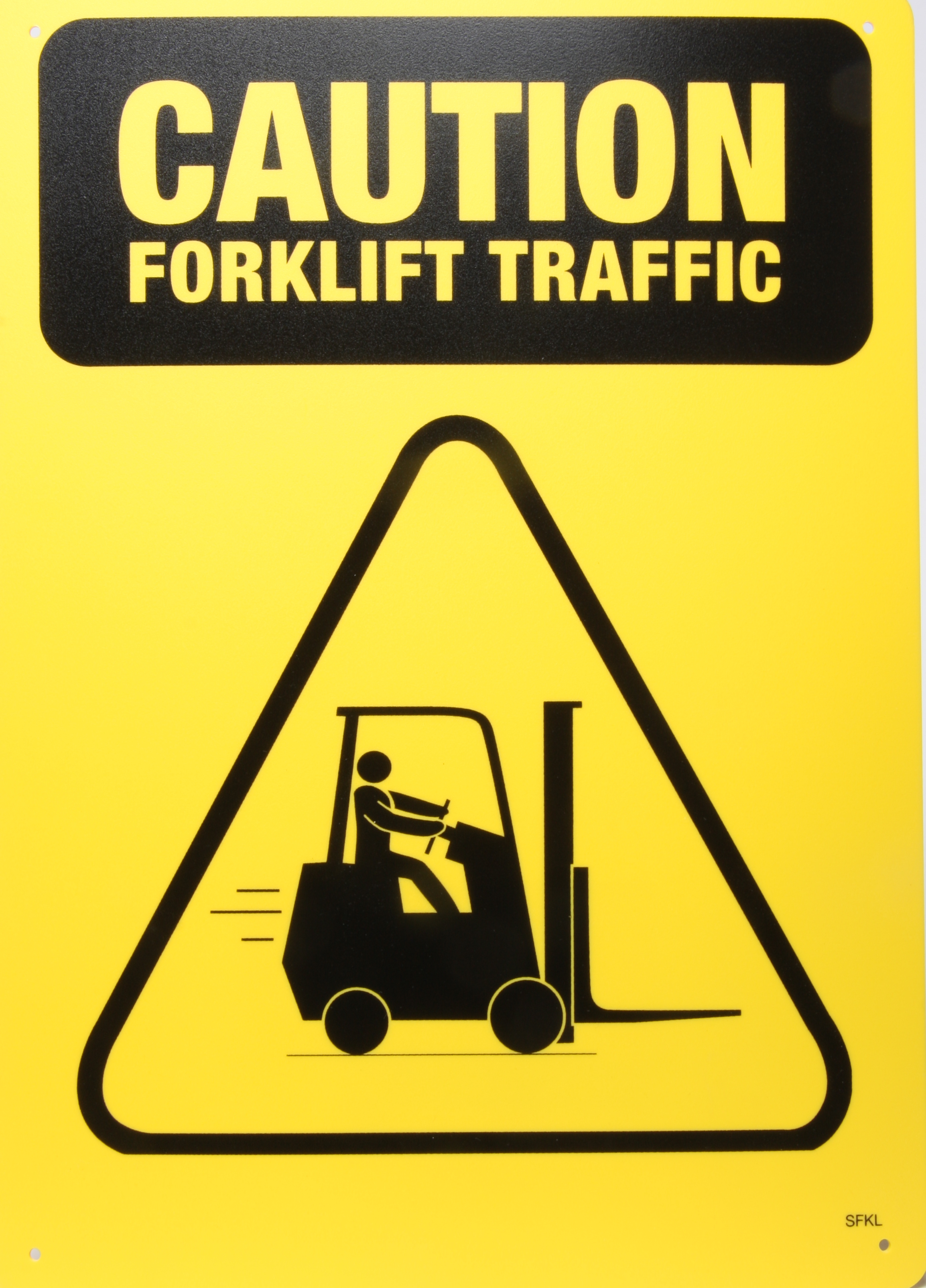 Posters, Reference Materials, Signs & Stickers are a valuable tool for companies to keep safety at the forefront of their employee’s minds.
Posters, Reference Materials, Signs & Stickers are a valuable tool for companies to keep safety at the forefront of their employee’s minds.
Bring safety to the forefront with strategic placement of posters and signage designed to display simple and powerful messages.
Reference materials including ANSI Manuals of Responsibilities and rigging handbooks are an excellent tool for operators to have on hand.
Available for forklifts, mobile elevating work platforms (MEWP), loaders and excavators.
Ask Bob
Hi Bob,
Question:
 On the New "Pre-use Inspection: Forklifts form, what does the acronym "AR" stand for in between the OK and NA columns?
On the New "Pre-use Inspection: Forklifts form, what does the acronym "AR" stand for in between the OK and NA columns?
Also, on the New Practical Evaluation: Forklifts form, what does the acronym "AO" stand for next to ATR?
Answer:
Great question and thanks for noticing the new updates.
AR on the inspection checklist means ‘Attention Required’.
It is used to indicate that there is something worth noting for supervisors or maintenance people to be aware of to repair or adjust.
AO is for ‘Additional Observations’ and is used by adding hash marks in to continue keeping track of deficiencies noted on a given line item on the form after a trainee has been identified as being in need of additional training (ATR).
If you go to the member Dashboard and go to the last item under Downloadable Materials, you can download the new, updated sections for the evaluation process to put in your manual.
This also references all the columns, etc.
If you are new to the evaluation form, I would also suggest watching the orientation video for it as well.
Bob
Interesting Articles
- Company convicted after work dies from electric shock…more.
- Amazon fined after worker dies…more.
- 12 year old leads police on chase with stolen Telehandler [VIDEO]...more.
- Man killed after being pinned between stack of pellets and a forklift...more.
- Company fined after forklift lift load falls on worker…more.
- 19 year old dies after being struck by his father driving a boomlift…more.
- Funny, bizarre or OSHA-violating incidents witnessed by construction workers...more.
- Operator injured after his Excavator tips over...more.
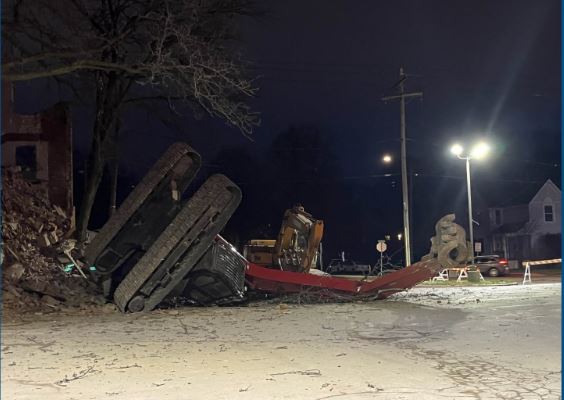
Client Testimonials
 "Very well-structured program delivered by a very knowledgeable professional and approachable trainer."
"Very well-structured program delivered by a very knowledgeable professional and approachable trainer."
Bradley, Premium Forklift Train the Trainer.
“Great program as always. Appreciate that IVES is always on the cutting of new regulations and keeping their training techniques solid and user friendly. Your website is the ultimate resource for Trainers! Thanks for all of the great work that you do to keep us sharp and well informed.
Baldwin, Online Trainer Recertification Program.
“The way that the whole program is set up is fantastic, very well thought out & very logical sequences. After this training I’m all set to start training people without having to do anything else. This is truly turnkey."
Pete, Premium Combo Train the Trainer Program.
Did you enjoy this newsletter? Sign up for our newsletter to receive more like this!